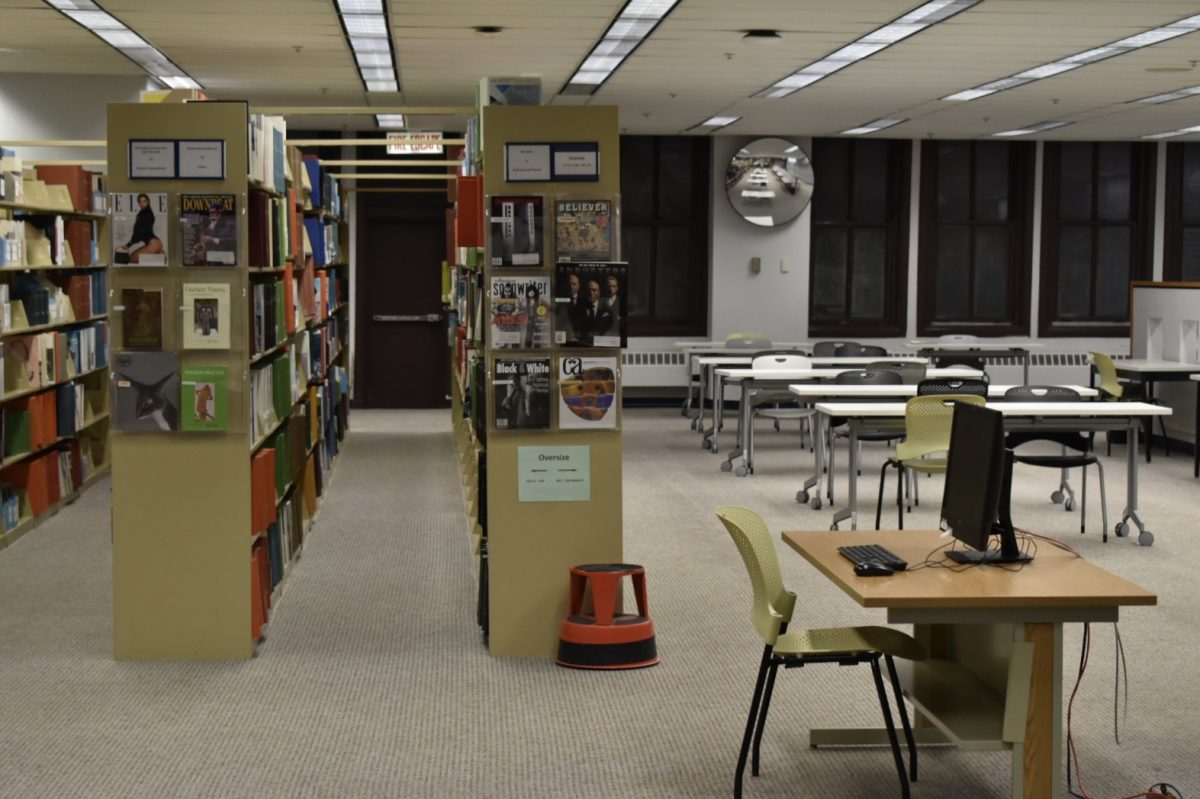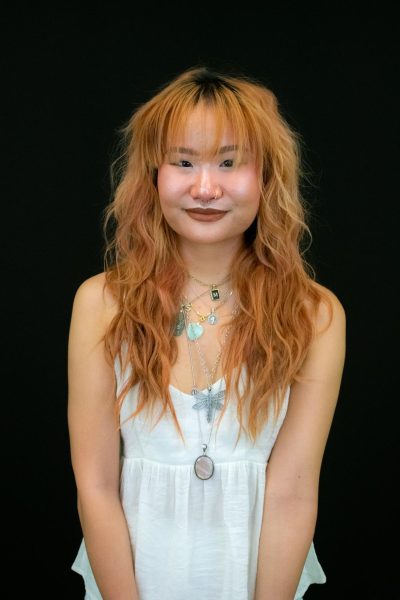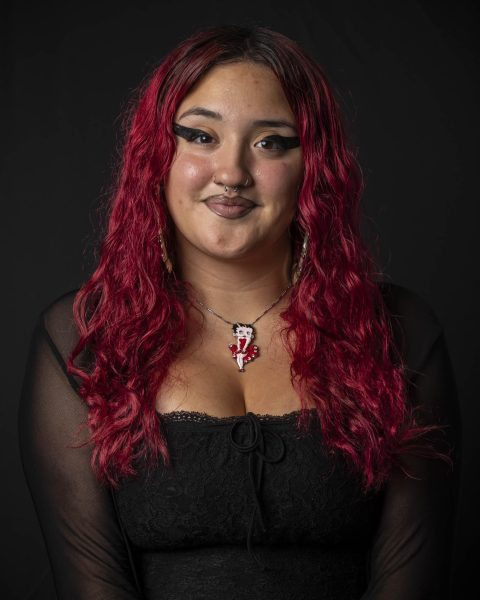Columbia is replacing its first-year writing textbook with a free open source resource developed by a group of faculty, librarians, students and others.
“Authoring Culture: The Foundations of Twenty-first Century Writing” will be published on LibreTexts Aug. 15. The text will replace the “Key Concepts in Writing and Rhetoric” textbook for first-year writing courses that cost six to seven dollars.
The online resource was a collaboration of full and part-time instructors, students, librarians, podcast and video creators. Other contributors include technologists who helped give instruction on online creation, coordinators to make sure the resource is accessible to all, and intellectual property specialists for copyright.
“Authoring Culture” is an updated fifth edition of “Key Concepts in Writing and Rhetoric,” which was also written by Columbia faculty. The resource includes terms that are often found in, but not limited to, writing, such as ethos, genre and story. Some of the terms are new and others are revised terms that were in the initial editions, said Jeanne Petrolle, associate professor and interim chair in the English and Creative Writing Department. Petrolle drafted the story chapter with Devon Polderman.
The text will be used in the new “Foundations of 21st Century Writing” course this upcoming fall, replacing the previously required two-sequence writing and rhetoric courses.
The collaborative textbook was funded by a $65,000 grant from the U.S. Department of Education with the Consortium of Academic and Research Libraries in Illinois.
“The idea of ‘OER,’ Open Educational Resources, is to spread knowledge to everyone without a fee,” said Brendan Riley, associate professor in the English and Creative Writing Department and one of the editors on the project. “The point of seeking the grant and crafting the text for this purpose was to make the book more widely available and also be sure students at Columbia would continue to have access to high quality educational materials for free, at least for their first year writing course.”
The Consortium of Academic and Research Libraries in Illinois published the call for grant applications through libraries, and former academic engagement librarian Kim Hale, who was just laid off after nearly 35 years, forwarded the information to many people at the college. Robin Whatley, associate dean of the School of Liberal Arts and Sciences and associate professor in the Science and Mathematics Department, then passed on the message to Petrolle. “I thought this kind of money could fund the revision and updating of this textbook. Then while we’re revising it, we can recreate it as an open educational resource so that, rather than paying for it, Columbia students would have access to it for free.”
Creating a free resource for students had much appeal for those involved. Hilary Sarat-St. Peter, associate professor in the English and Creative Writing Department, was part of the original production committee for “Key Concepts.” Sarat-St. Peter wrote a chapter on revision and designed an assignment involving 3D printers with her husband Austin St. Peter. She said, “The cost of textbooks is astronomical, and that doesn’t really serve our mission of diversity, equity and inclusion if 30% of students can’t purchase a textbook.”
According to Columbia’s cost of attendance from the 2023-2024 school year, the estimated budget for full-time students for books and supplies was $900.
The Michelson 20MM Foundation, part of the Michelson Philanthropies network, reports that 63-65% of students don’t buy textbooks due to expensive costs.
“We are also hoping and inspiring that other students and faculty at other institutions, perhaps DePaul or Roosevelt or SAIC, would choose to adopt our textbook as well by their own choice because it’s so good, and the open access nature allows them to do that without a lot of logistical hurdles,” Sarat-St. Peter said.
Arlie Sims, the head of reference and instruction librarian and now the project manager of “Authoring Culture,” said that every year, near the beginning of the semester, the library gets an influx of students seeking out textbooks for their courses so they don’t have to buy them.
While fewer departments use or assign textbooks anymore, “for the departments that do use textbooks, every faculty member said it was a big issue,” Sims said, referring to affordability. “They always have a significant number of students who can’t afford to buy, or because of the way financial aid works, they had to wait until the course had started to buy the book, and it did affect their success in the class.”
Su Thiri San, a junior graphic design major, said having a free resource “means you’re basically cutting costs to the resources you will need when you first start the college.”
Junior creative writing major Aiden Fijal said that accessible textbooks would be extremely beneficial to students financially. “I’m pretty much entirely self-sustaining, so I definitely try to minimize costs when I can,” they said. “I’m always searching for textbook PDFs and stuff like that, and it would have been a nice weight off my shoulders to not have to go out of my way to hunt down a cheaper or free textbook and to have it be like that by default.”
Similarly, David Henry, a senior acting major, has also looked into ways to cut down costs on textbooks like using ThriftBooks. He said that open educational resources like “Authoring Culture” would “make education more accessible and more open, and hopefully, another barrier is eliminated to allow people access to education.”
Petrolle was also interested in creating a free and easily accessible resource to save students money. “We thought it would be more equitable to create a book that is totally free and open,” she said. “That’s the whole idea behind open educational resources. It’s to make textbooks equally accessible to everyone, regardless of income.”
“Authoring Culture” will be available to anyone on LibreTexts, an OER platform for educators to create and share textbooks and other teaching materials.
The online textbook also features podcasts and videos, elements that previous editions lacked, to further efforts toward accessibility for different kinds of learners.
Petrolle said that in addition to accessibility, the collective wanted to include these audio and visual enhancements to make the resource more relevant and easy to incorporate into other courses outside of English and creative writing. Being able to send a link to a podcast or video makes it easier to circulate information rather than sending an entire online textbook, she said.
Additionally, Petrolle said having such a resource would help cultivate a shared vocabulary amongst all those at the college. “The more we share a vocabulary about writing, the more we can support students in their development as writers,” she said.
“Even though this is a book for people at Columbia, beyond Columbia, people anywhere, we wanted it to be very distinctively Columbia,” Petrolle said.
To make the book more “distinctively Columbia,” senior film and television student Alejandro Bottia-Forero and creative writing graduate student and ambassador Alexandra Riseman designed the cover.
“Working on this project as a student was a huge deal to me because this was my chance to take my experience and show the higher-ups my ideas,” Bottia-Forero said. “Columbia faculty should really reach out to students when working on projects like these.”
All that is left of the production before the go-live date is peer editing and integrating the feedback, said Petrolle. Members of the team who helped to create “Authoring Culture,” like Hale — the initial project manager of the textbook — and Riley, will present at conferences discussing open educational resources.
“Really, it’s actually just the beginning. It’s not the end when it goes live on Aug. 15,” Petrolle said. “We’ll start all kinds of new activities to help teachers across the college use it in whatever way would be most helpful to them in their classes. I’m very excited about that.”
Copy edited by Trinity Balboa and Doreen Abril Albuerne-Rodriguez










